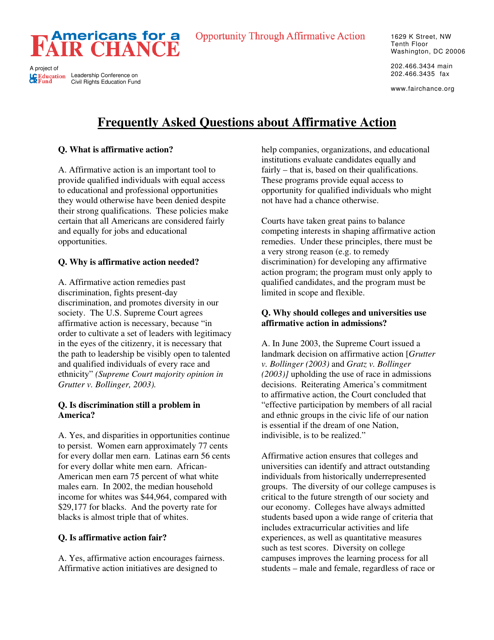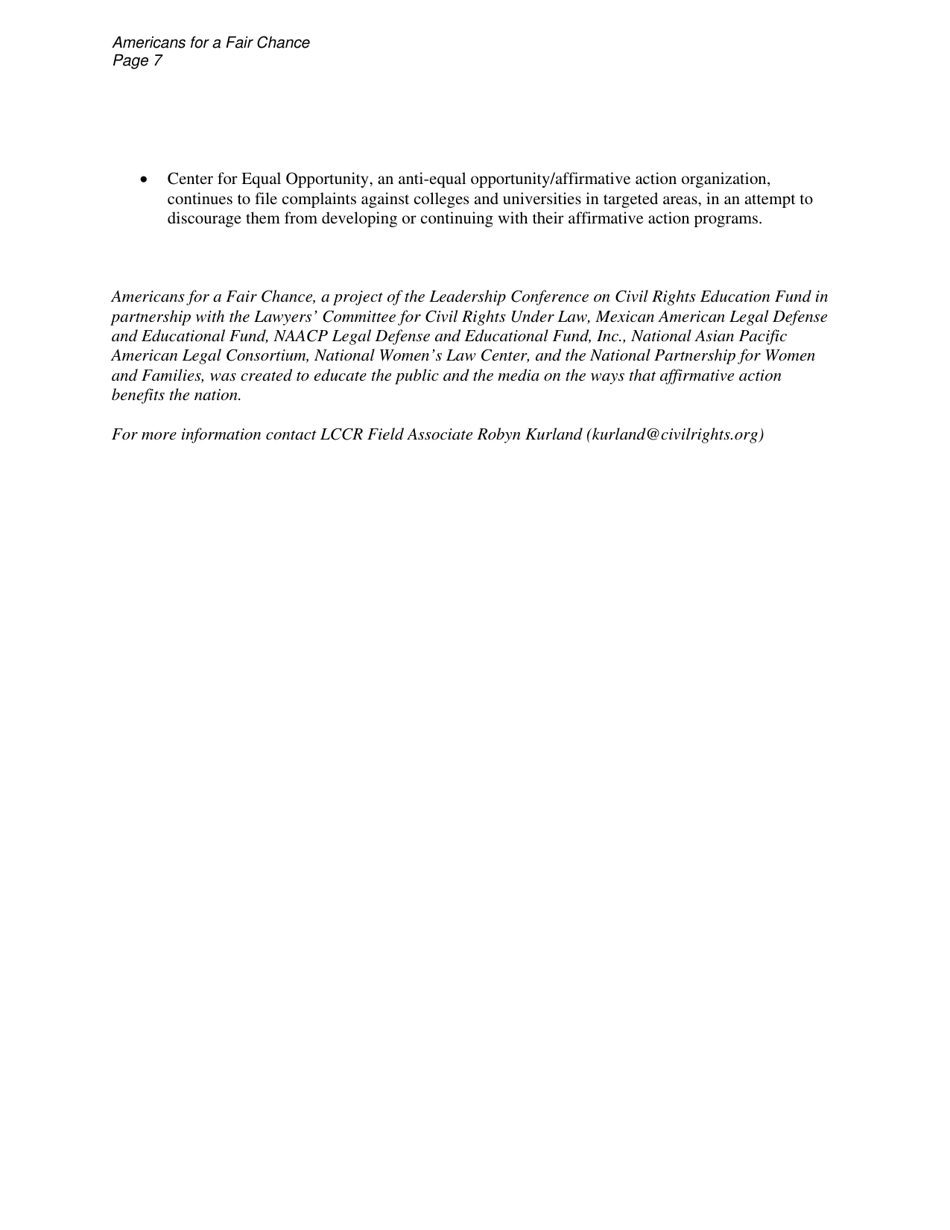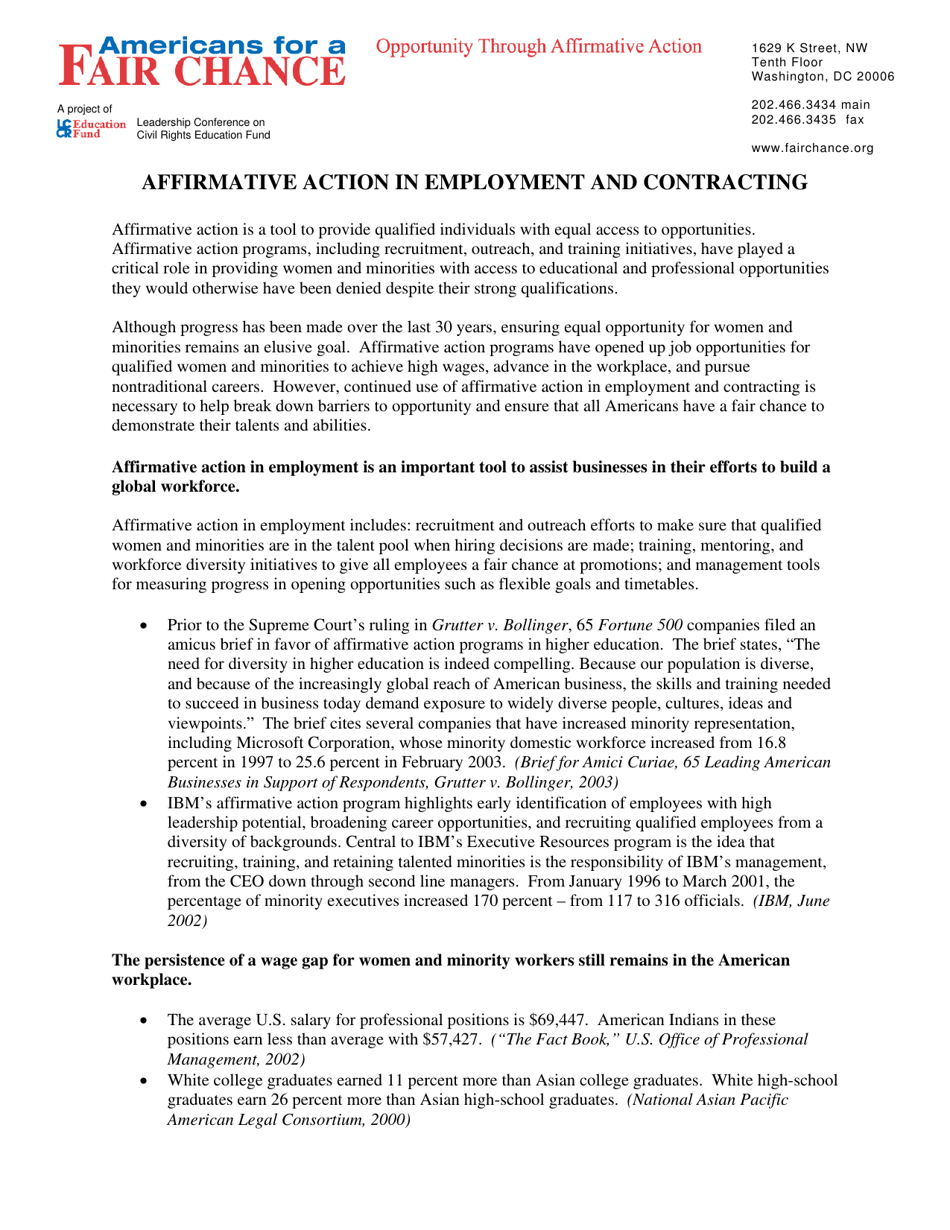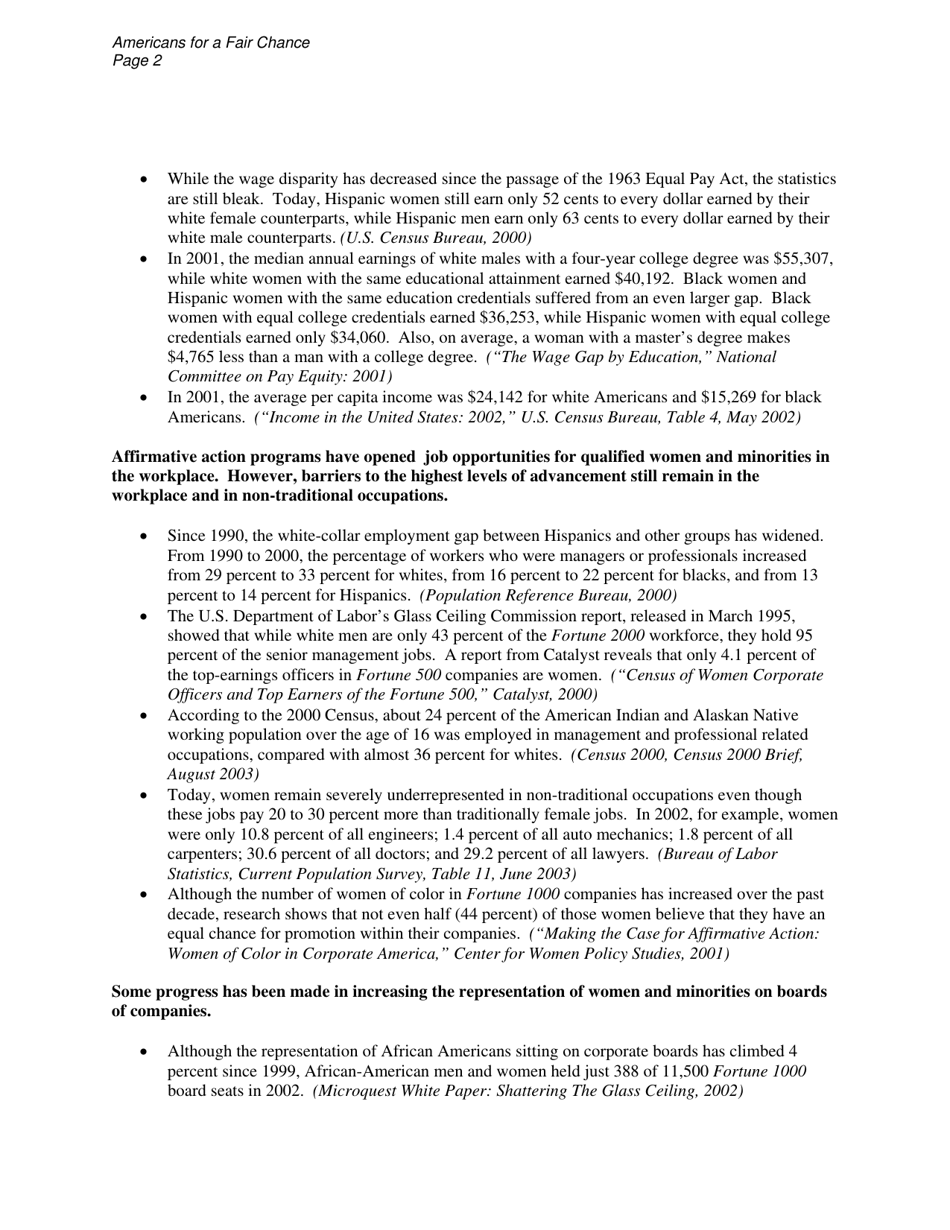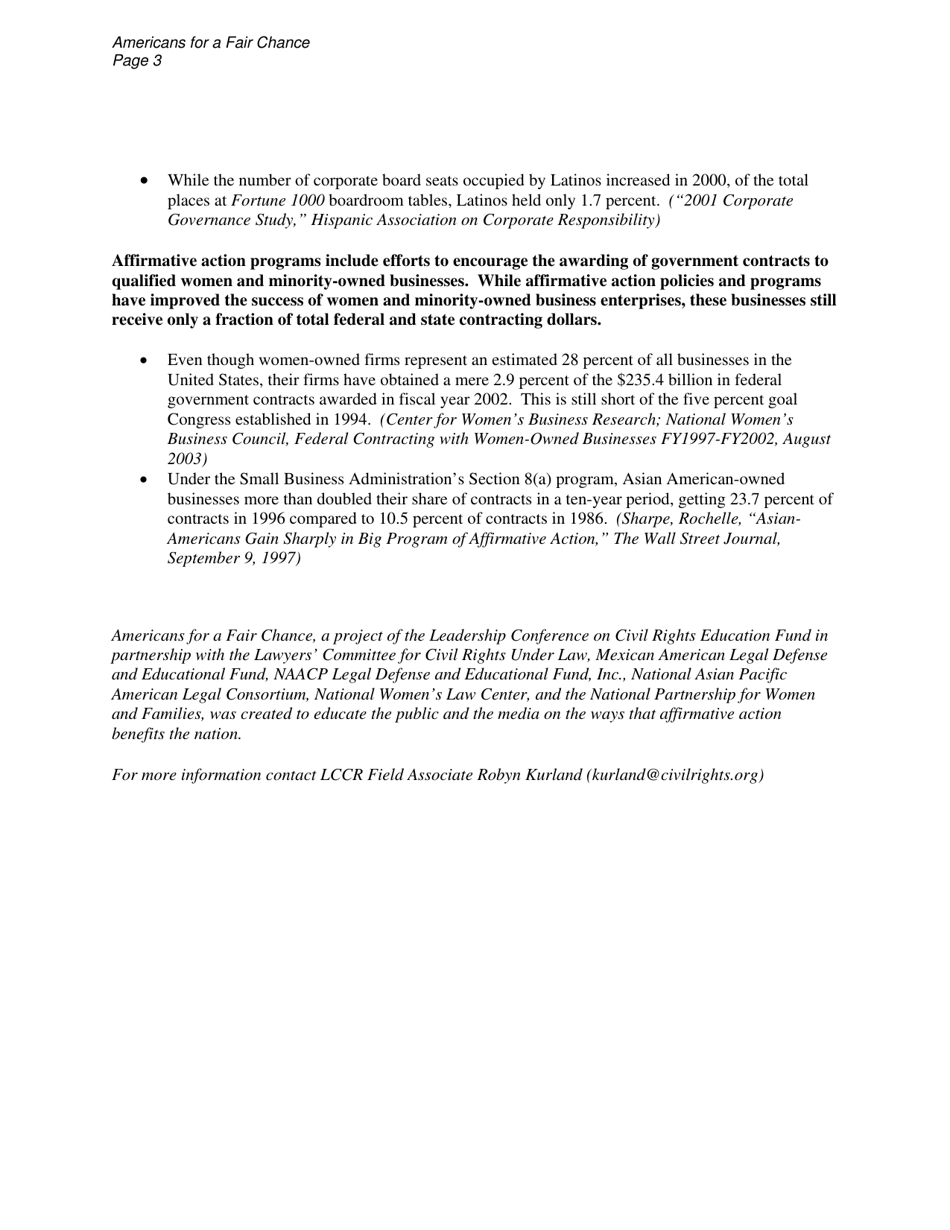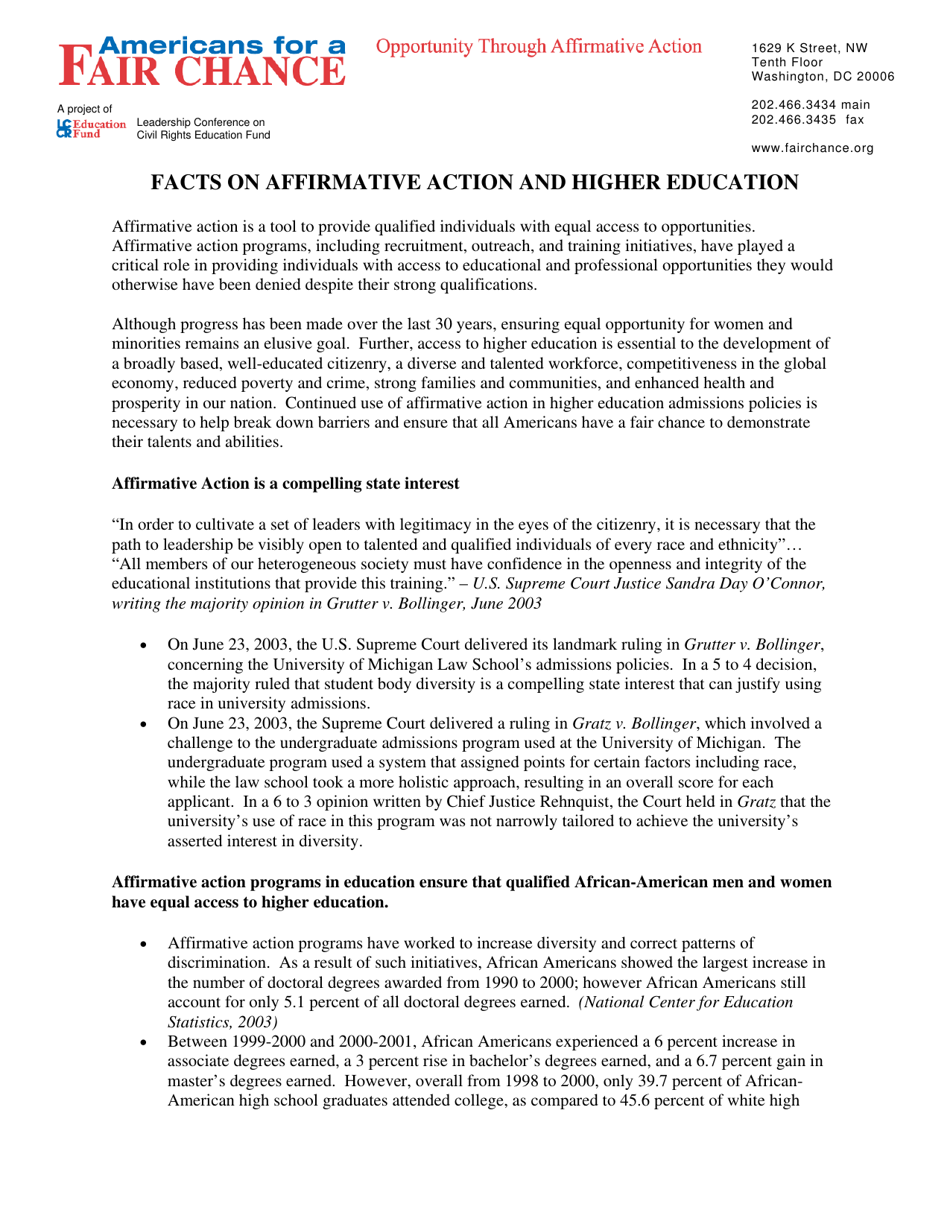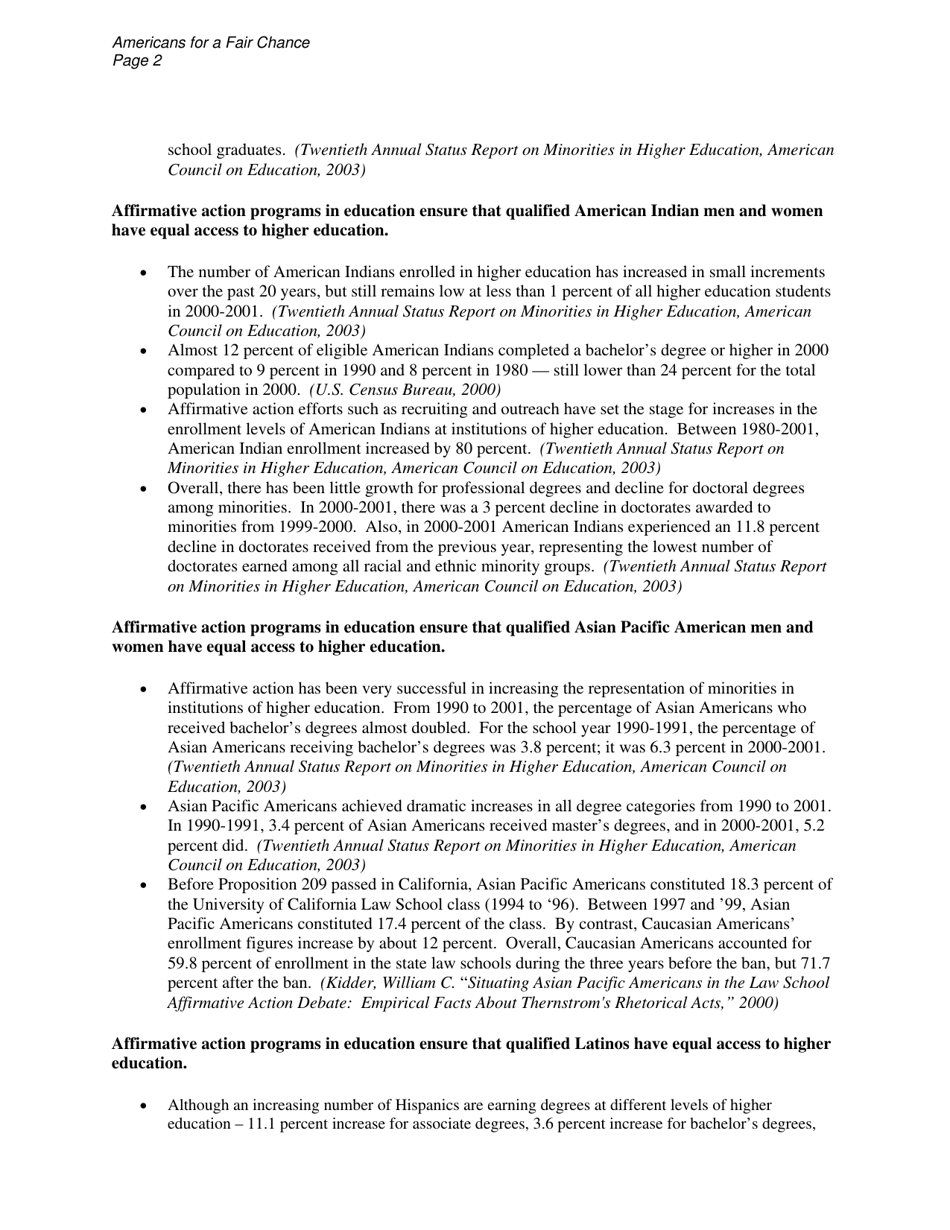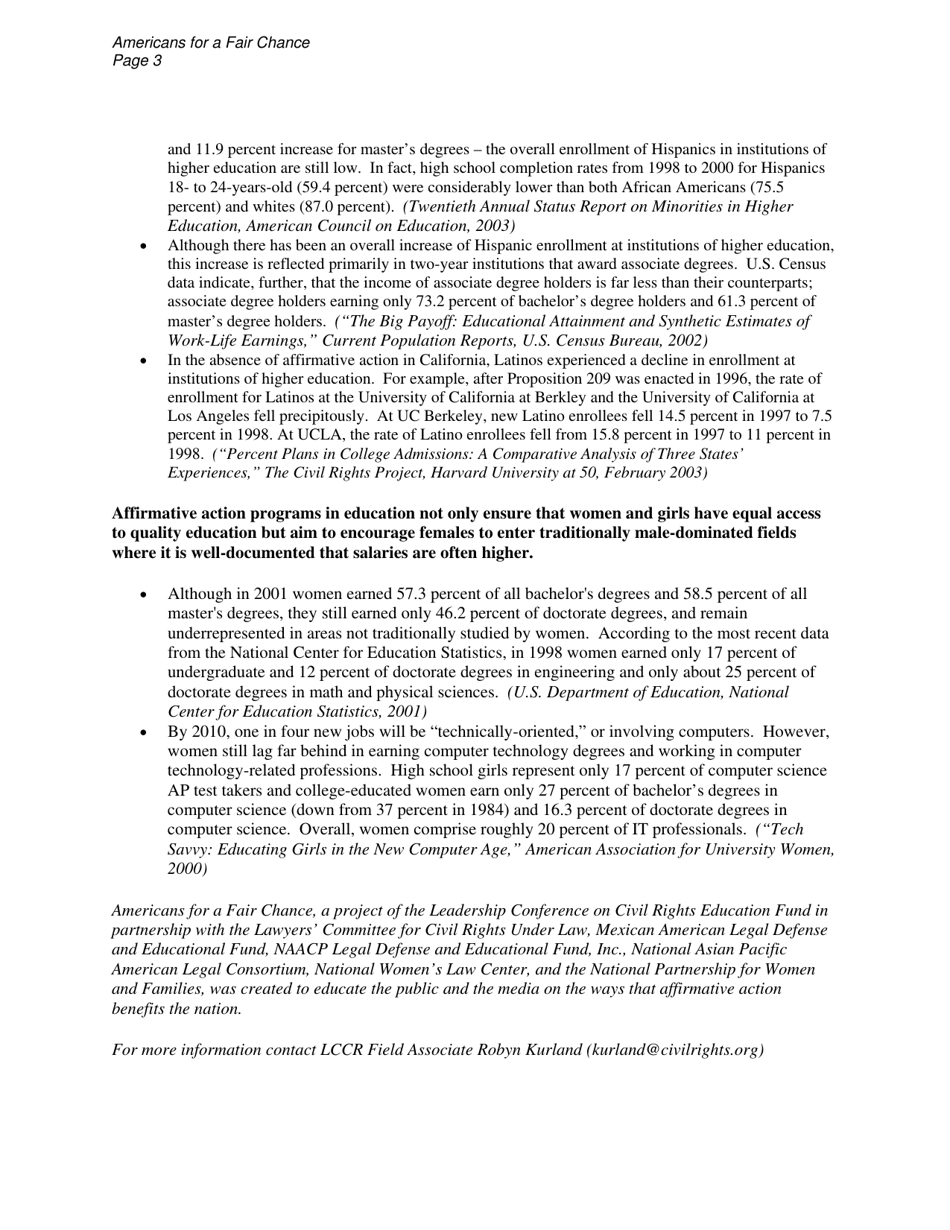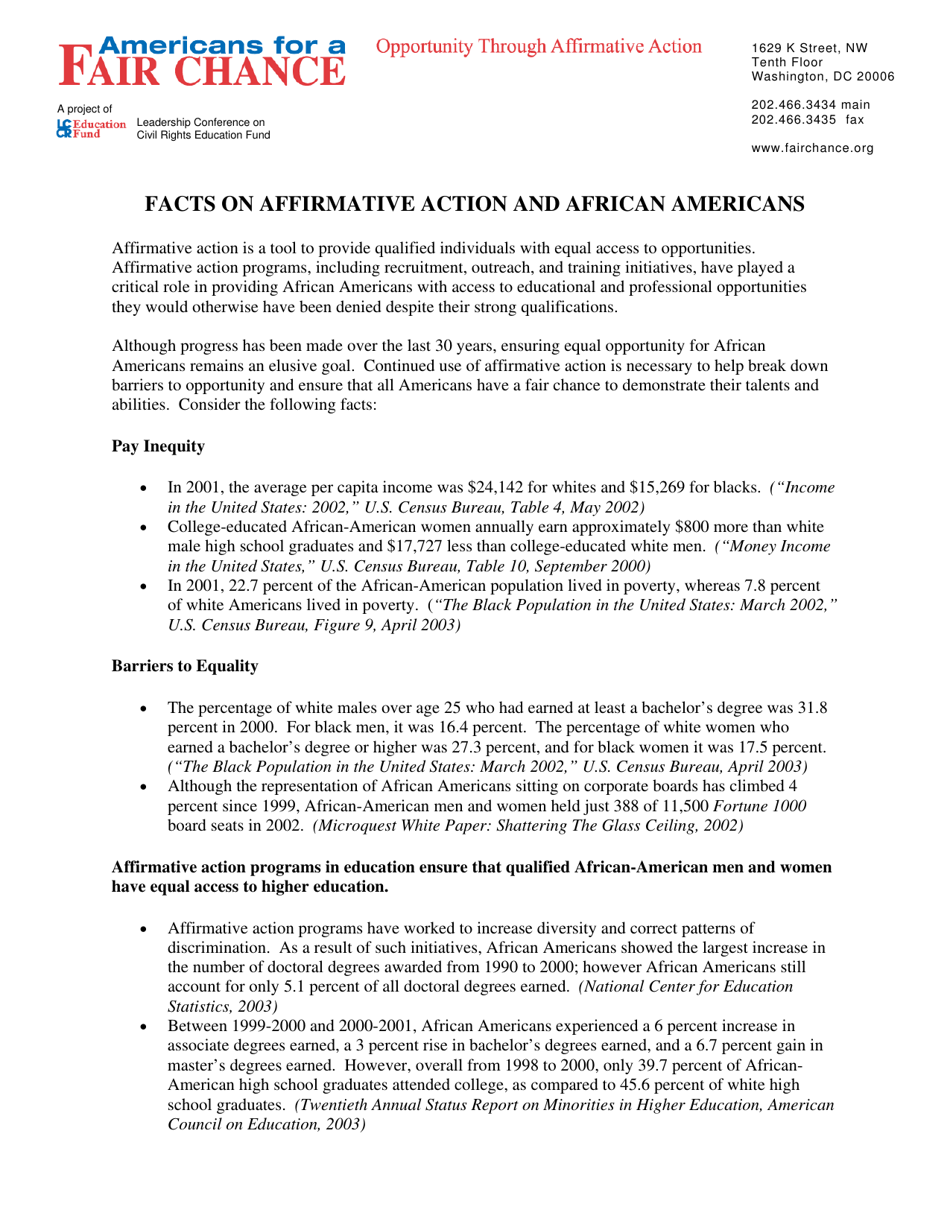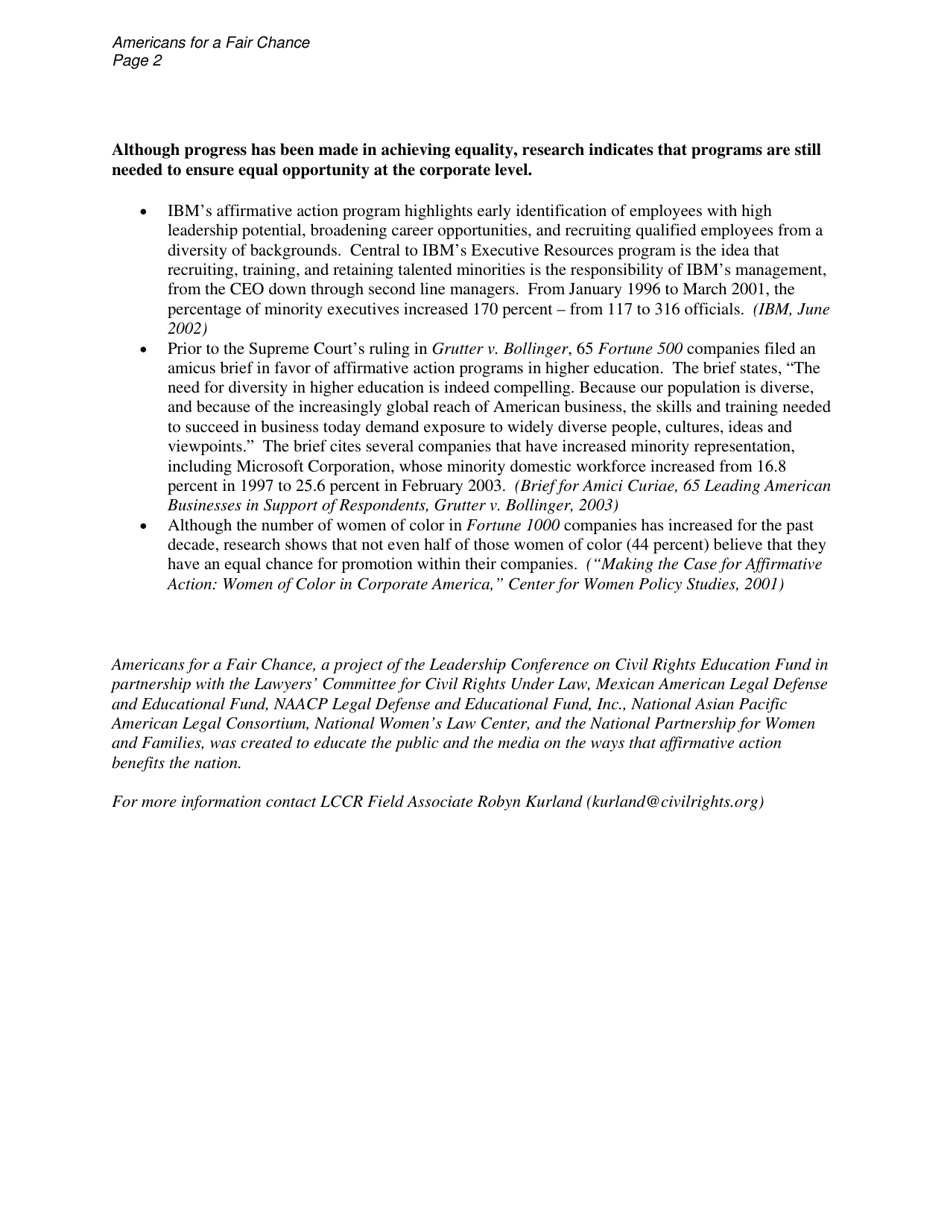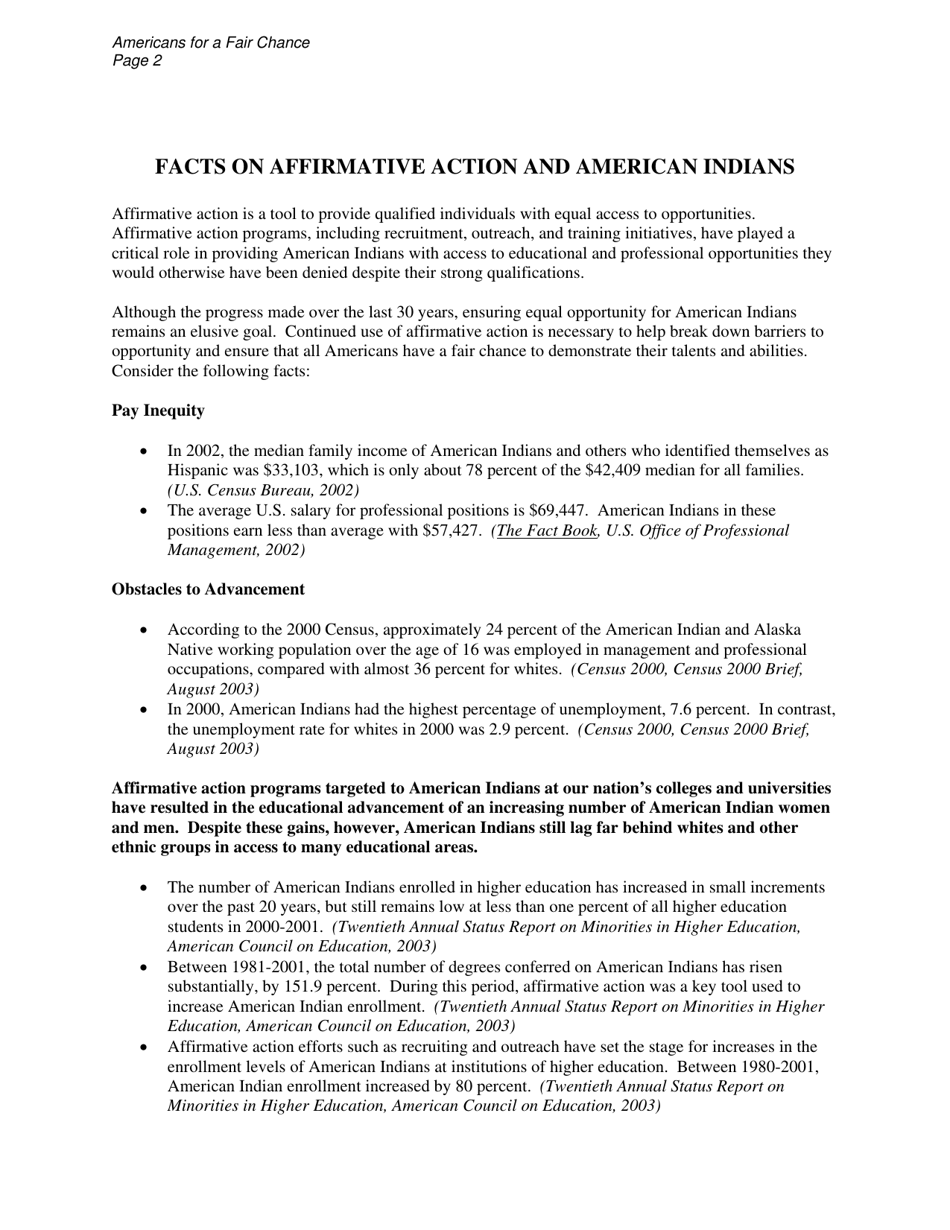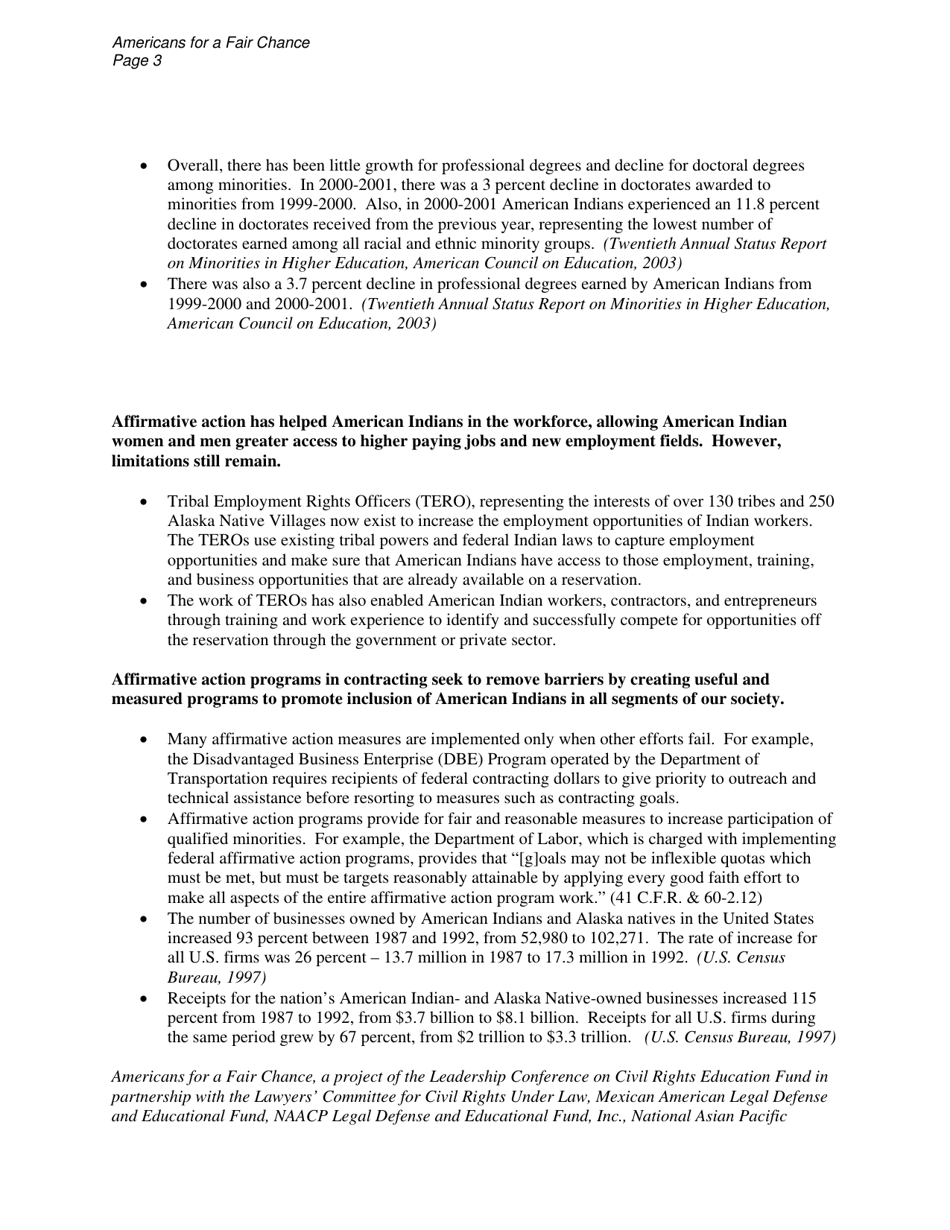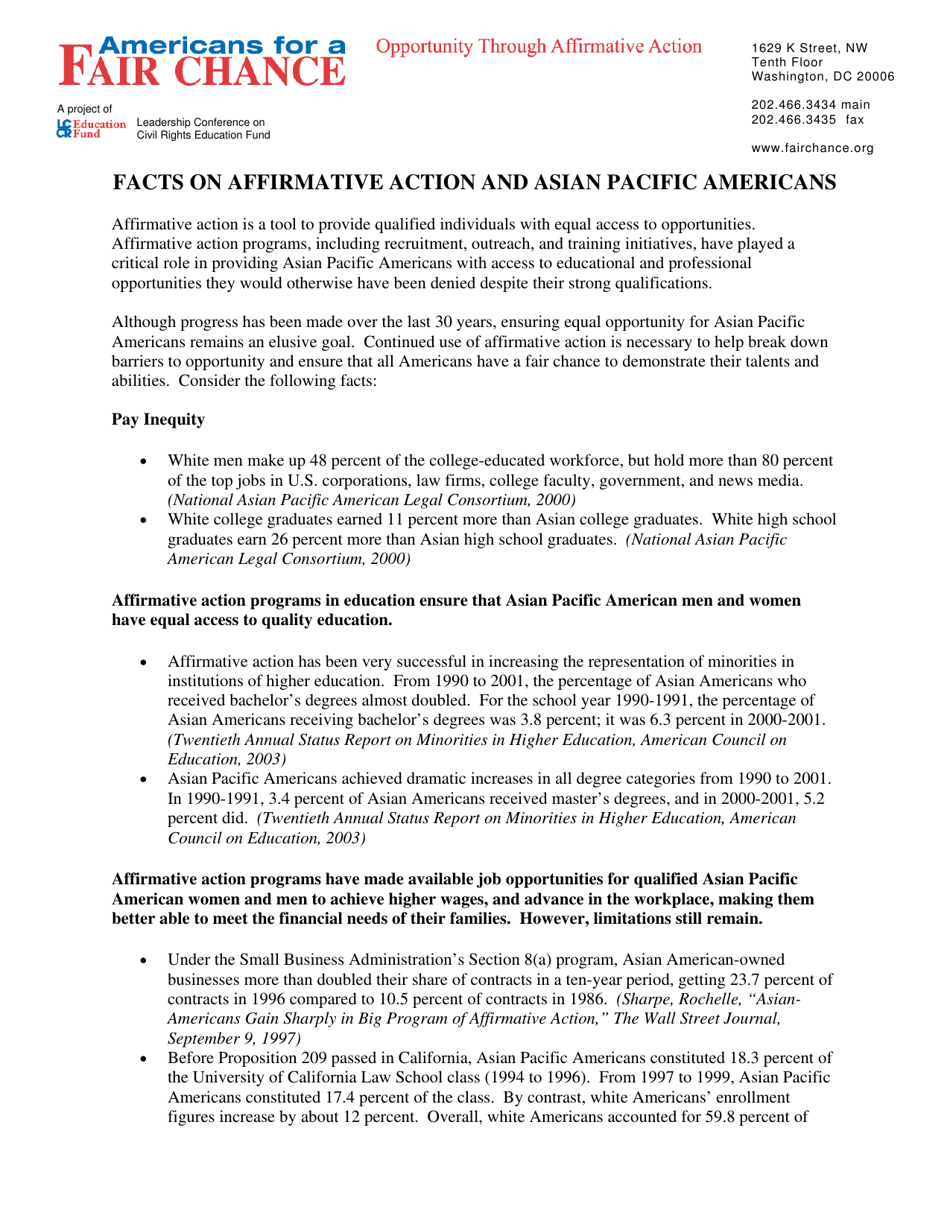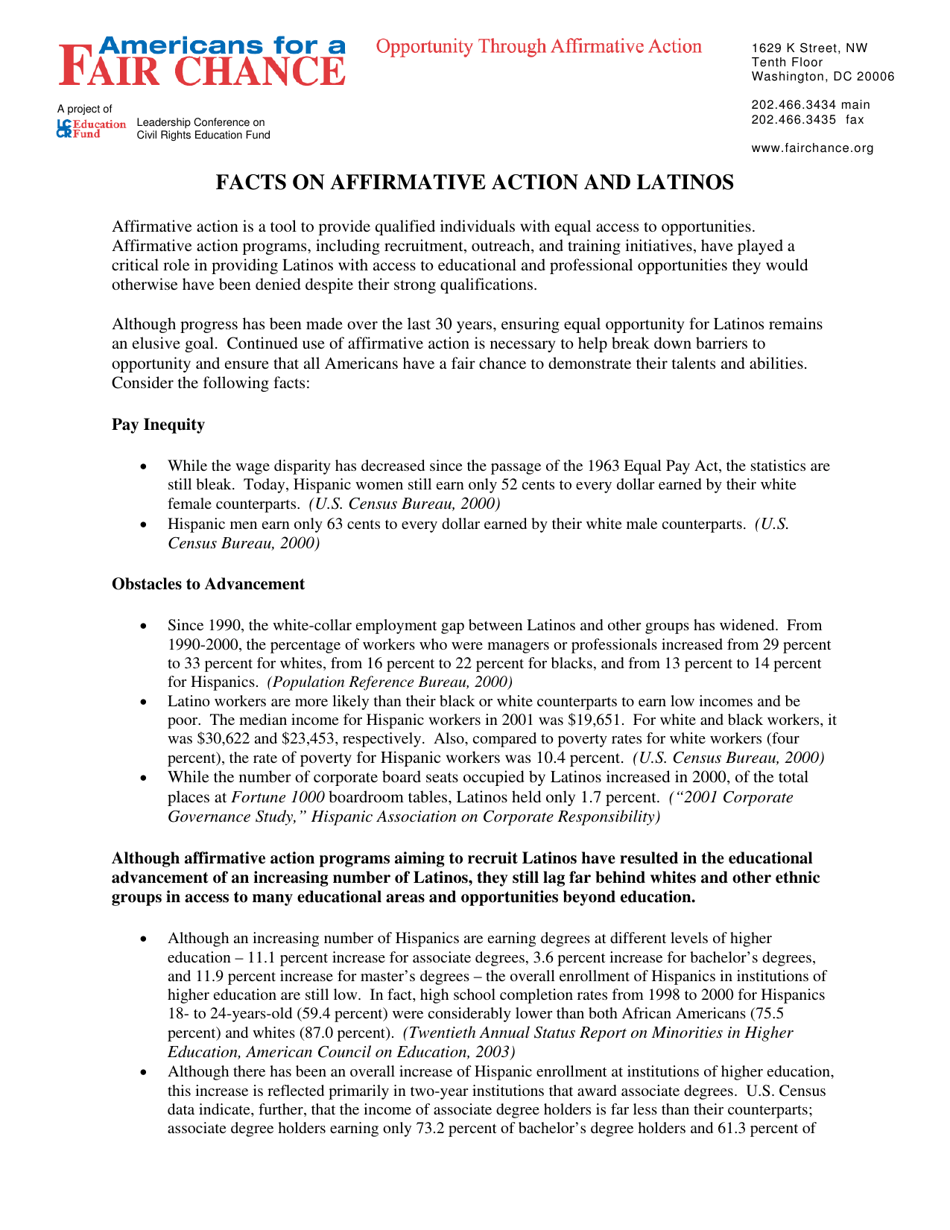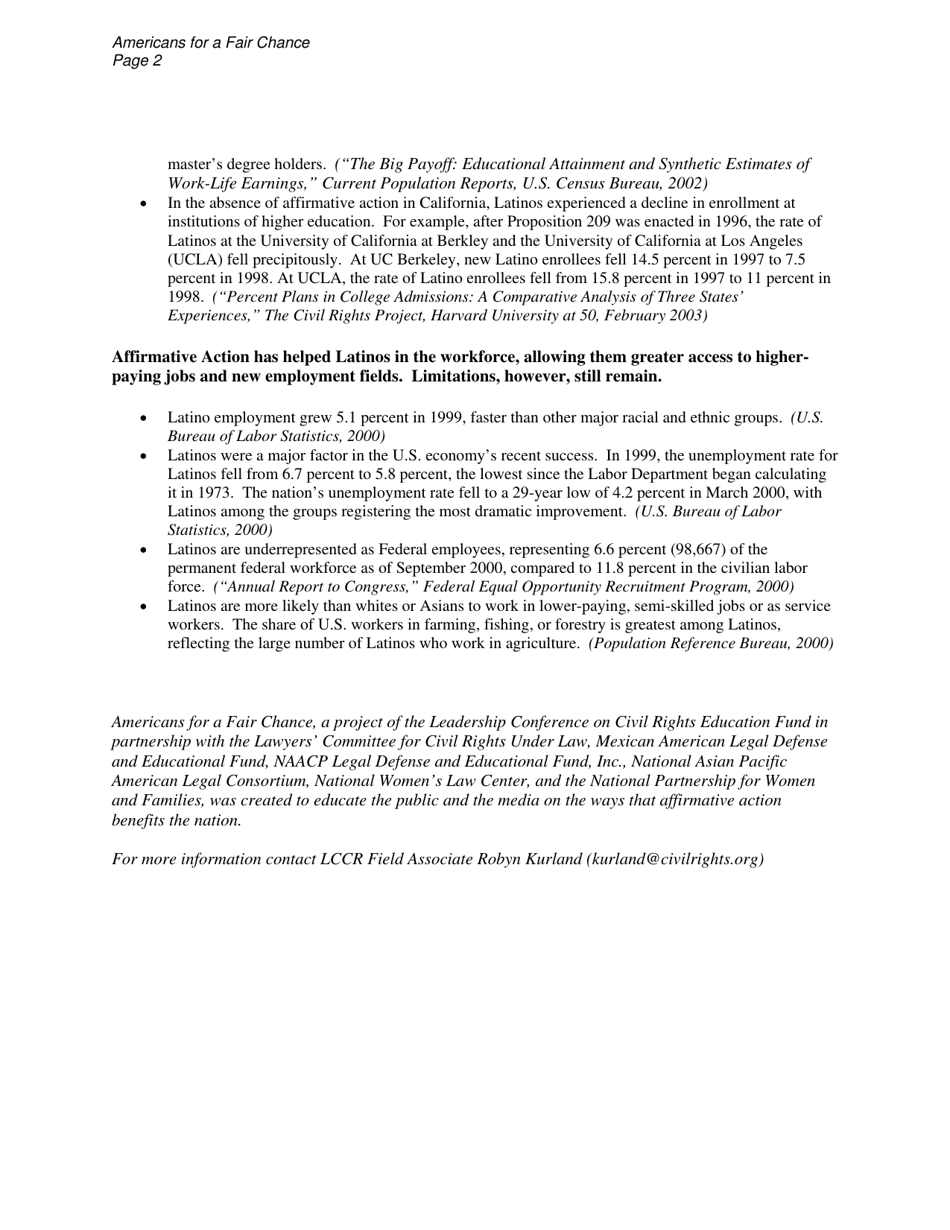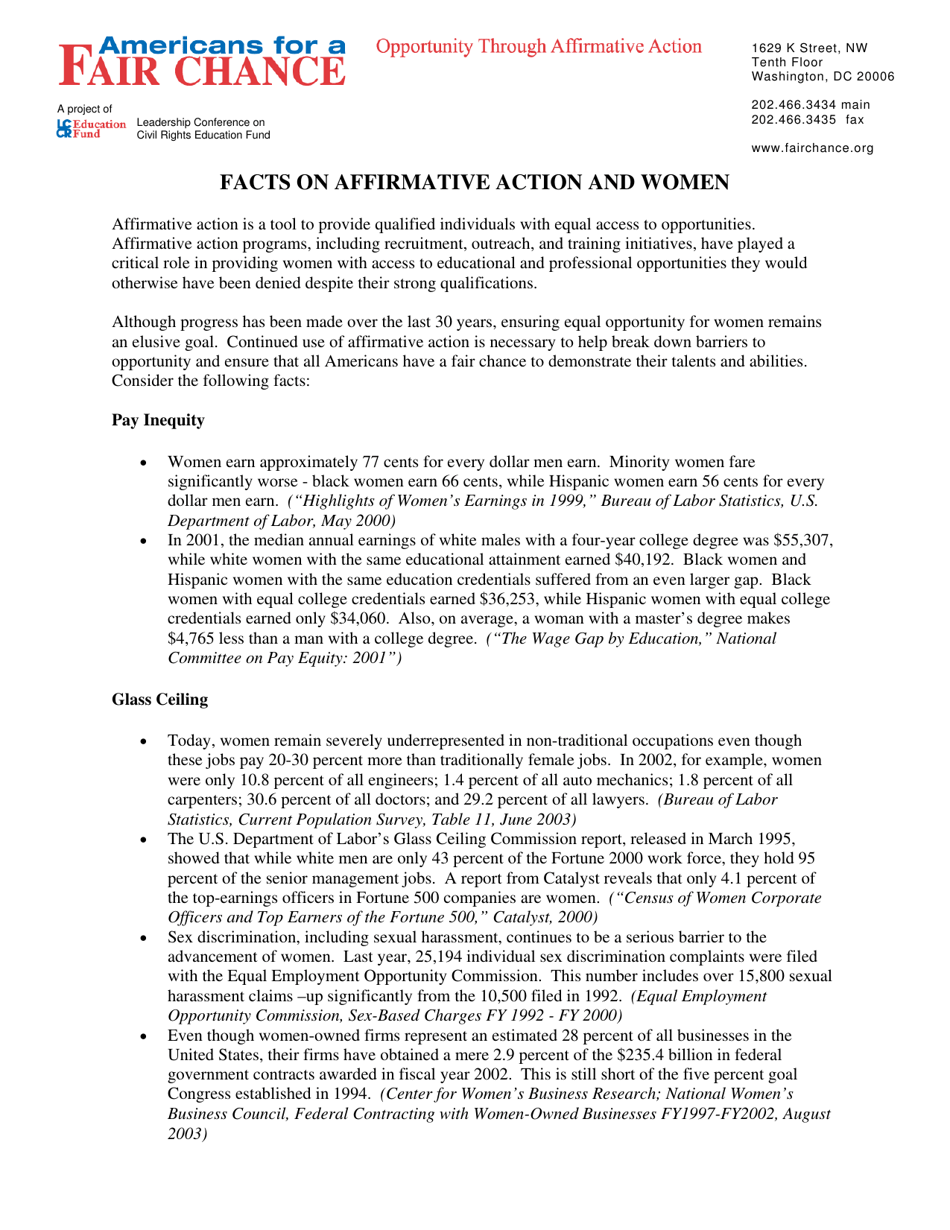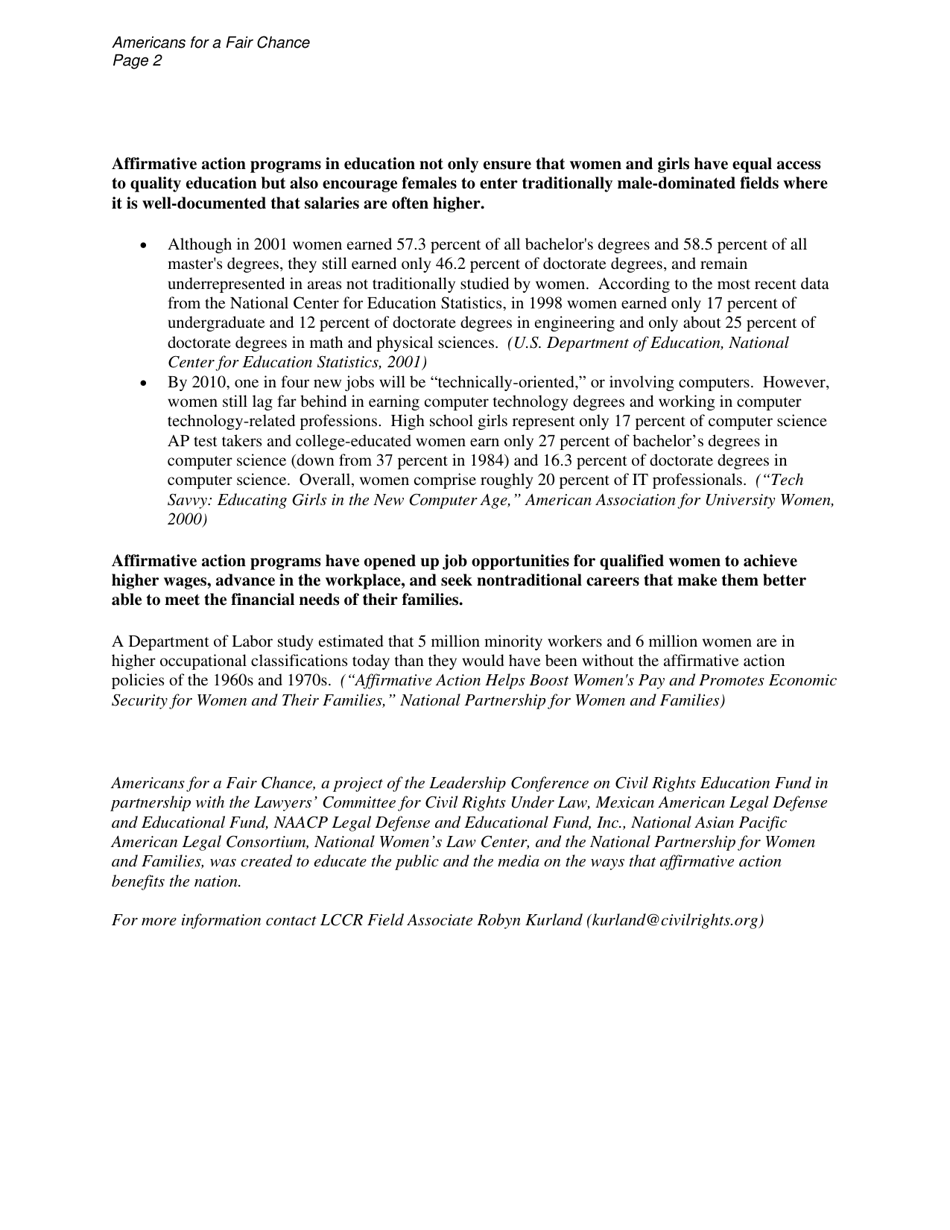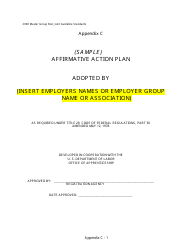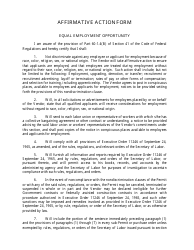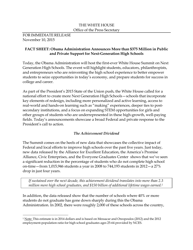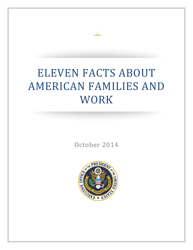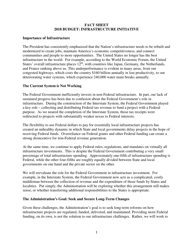Affirmative Action Fact Sheets - Americans for a Fair Chance
The Affirmative Action Fact Sheets by Americans for a Fair Chance provide information and facts about affirmative action policies and programs in the United States. They aim to promote equal opportunities and address historical disadvantages faced by certain groups based on race, gender, or ethnicity.
FAQ
Q: What is affirmative action?
A: Affirmative action is a policy that promotes equal opportunities for individuals in employment, education, and other areas, with a focus on addressing historical disadvantages faced by certain groups.
Q: Why is affirmative action necessary?
A: Affirmative action aims to correct past and present discrimination, promote diversity, and create a more equitable society.
Q: Who does affirmative action benefit?
A: Affirmative action benefits historically marginalized groups, including women, racial and ethnic minorities, and individuals with disabilities.
Q: Does affirmative action mean giving preference to certain groups?
A: No, affirmative action does not mean giving preferential treatment. It seeks to level the playing field and ensure fair access to opportunities.
Q: Is affirmative action still necessary today?
A: Yes, affirmative action is still necessary to address ongoing systemic inequities and promote equal opportunities for all.
Q: Does affirmative action exclude qualified individuals?
A: No, affirmative action does not exclude qualified individuals. It encourages considering diverse candidates while upholding standards of merit and qualifications.
Q: Is affirmative action constitutional?
A: Affirmative action has been upheld as constitutional by the Supreme Court, with certain limitations and conditions.
Q: What are some criticisms of affirmative action?
A: Critics argue that affirmative action can lead to reverse discrimination, undermine meritocracy, and perpetuate group-based preferences.
Q: What is the future of affirmative action?
A: The future of affirmative action is an ongoing debate, with ongoing efforts to refine and adapt the policy to address contemporary challenges.
